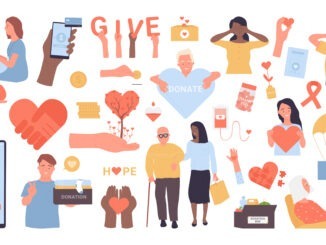
Professor David Colin-Thomé, chair of PCC, discusses the challenges that general practice has faced, and is continuing to face

General medical practice needs to continually meet the warranted rising expectations of their registered patients. Inadequate access is perennially an issue and of parallel concern are lapses in quality of care and unwarranted variations in care provision. All these issues are equally of concern in all healthcare services worldwide. Recently there has been specific criticism of lack of face-to-face patient contact since the COVID-19 pandemic hit the UK; all NHS services are equally struggling to return to pre-pandemic lockdown levels.
The vexed question of face-to-face care should not be subject to instant comments; this is a complex issue and many of our patients, when appropriate, welcome virtual consultations. Offering different clinical consultation modes is also the only way general practice can offer a reasonable speedy access response – GPs cannot follow the hospital response of ever-lengthening waiting lists.
During the COVID-19 outbreak practices have had to strike a delicate balance between providing face-to-face patient care where clinically necessary, and minimising the number of face-to-face patient contacts in line with national infection control protocols. In England, prior to the national lockdown in March 2020, just over 70% of GP appointments, and almost 80% of appointments in general practice overall, were delivered face-to-face. During the first national lockdown these proportions changed dramatically, with data from the RCGP Research and Surveillance Centre showing that approximately 70% of GP appointments, and over 65% of general practice appointments, were being undertaken remotely by telephone or video; as practices have reconfigured their systems and processes to minimise risks of infection from face-to-face attendance, the mix of appointments has shifted to a more even split; by mid-March 2021 in England, telephone and video appointments accounted for 54% of total appointments, while face-to-face appointments made up 46%.
General practice is a multifaceted service encompassing care, cure and health and wellbeing. The essential attributes of a GP service are:
- First point of contact care for many.
- Continuous person and family-focused care.
- Care for all common health needs.
- Management of long-term conditions.
- Referral and co-ordination of specialist care.
- Care of the health of the population, as well as the individual.
Any lack of access to this range of services is potentially deleterious to patients. Alternatives are, inevitably, of lesser value – although certainly still of use. GP out of hours services, and various hospital urgent care services, all offer very limited access to the huge numbers of people who attend general practice. Pressures induced by GP patients are claimed to overwhelm these services which inadequately cope with quite small shifts in numbers of attendees.
General practice, though not solely responsible, is key to the early diagnosis so important in better patient outcomes for instance in malignant conditions and also in long term conditions. Their care of vulnerable and frail patients is of manifold importance to patients and NHS alike. Recent Red Cross research figures suggest less than one per cent of the population account for 16% of emergency department visits in England;there are similar figures for emergency ambulance use.
This cohort of patients often responds positively to proactive case management techniques – usually with, or in association with, their GPs. The necessary pandemic lockdown has negatively impacted many such services where GP involvement is essential. Most of long-term conditions’ care is delivered in general practice, augmented by the quality and outcomes framework; the NHS’ high ranking by the Commonwealth Fund is largely due to general practice success in the care of long term conditions.
The present model of general practice has, for the vast majority, served the patients of its registered population and, in turn, the NHS well. General practice is the only NHS organisation that cares for both the individual and registered population and its strength is its localness.
At a time when, especially for socio-economic deprived populations, services are becoming larger, more distant and inaccessible, general practice is an important part of local social capital. Do not remove or change it, but support and enhance it.
That was the purpose of the hugely successful, and previously noted, Primary Care Home model. The national policy successor – the primary care network – should take on the mantle of its antecedent to support, nourish and enhance general practice, so enhancing local community provision.
Professor David Colin-Thomé, OBE, chair of PCC and formerly a GP for 36 years, the National Clinical Director of Primary, Dept of Health England 2001- 10 and visiting Professor Manchester and Durham Universities.
PCC is a not for profit social enterprise that provides trusted, practical support to health care services including training, development and advisory services www.pcc-cic.org.uk



Be the first to comment